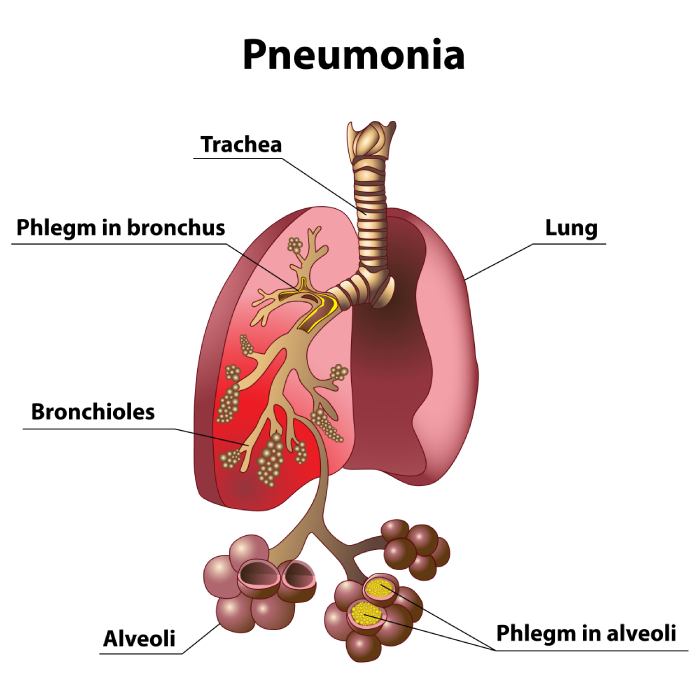A Closer Look At Pneumonia Variants Affecting Your Elderly Loved One

Pneumonia is an ailment that holds no punches, particularly for the seasoned members of our society. Types of pneumonia in the elderly range widely, each bringing its own challenges. This condition demands serious attention, as it can seriously affect the elderly due to their sometimes delicate health.
Life in our retirement community for active adults is designed to be proactive about health while indulging in the pleasures of life. We recognize the risks that illnesses like pneumonia pose to the elderly and the importance of a supportive living environment.
Below are some pneumonia variants that you should know about to better manage it.
Viral Pneumonia: Less Severe but Highly Contagious Among Seniors
Viral pneumonia is common in elderly individuals. It often starts as a cold or the flu but then gets worse. The symptoms might seem mild at first. However, because a virus causes it, it can spread quickly among people, especially in group living settings like care communities.
This type of pneumonia is less severe than others but should not be ignored. Rest, hydration, and staying away from others are usually recommended to prevent spreading. Medications might help ease symptoms, but since it's viral, antibiotics don't work. The focus should be on keeping the patient comfortable and avoiding complications.
Vaccinations play a big role in prevention. Annual flu shots and vaccinations against pneumonia and COVID-19 can be particularly effective in preventing viral pneumonia.
Aspiration Pneumonia: Resulting from Inhalation of Foreign Materials
Aspiration pneumonia happens when someone inhales food, drink, vomit, or saliva into their lungs. This concerns individuals with difficulty swallowing or those who can't clear their lungs properly. Older adults, especially those with health conditions affecting their swallowing ability, are at increased risk.
Symptoms include coughing, fever, and shortness of breath. Treatment usually involves antibiotics because the aspiration can lead to a bacterial lung infection. Preventing aspiration pneumonia focuses on helping your loved one eat and drink safely. Sometimes, changes in diet or assistance with feeding are necessary.
Posture during and after eating, regular dental care, and thorough assessments by health professionals can reduce the risk of aspiration pneumonia in elderly patients.
Fungal Pneumonia: Rare but Dangerous in Weakened Immune Systems
Fungal pneumonia is less common but poses a serious risk for individuals with weakened immune systems. It can result from breathing in fungal spores from the environment. This type of pneumonia often occurs in people with chronic health problems or taking medications that lower the body's ability to fight infection.
The symptoms might resemble other types of pneumonia, but diagnosis and treatment differ. Antifungal medications are needed, and the treatment period can be lengthy.
Limiting exposure to environments where these fungi might be present is a preventive measure. However, even that might not be enough for individuals with severely compromised immune systems. Close monitoring for symptoms and early treatment are crucial.
Hospital-Acquired Pneumonia: Higher Risk for Elderly in Medical Facilities
Hospital-acquired pneumonia is an infection contracted during a hospital stay, usually 48 hours or more after admission. The elderly are particularly vulnerable because of their weakened immune systems and many bacteria and viruses in hospitals.
This type of pneumonia can be severe and may require strong antibiotics. Preventive measures in hospitals and other healthcare facilities are thus vital. They include thorough handwashing, sterilization of equipment, and isolation of patients with contagious diseases.
Discover Our Caring Retirement Community
Our commitment goes beyond active living; our team members are meticulous in our efforts to prevent and address health concerns such as pneumonia. We aim to spot early signs of illness and provide the necessary care, with health personnel skilled in catering to the needs of the elderly.
Our doors are open, waiting to welcome you to our Personal Care community where life doesn't slow down with age. Connect with us to learn how we can support your lifestyle and care aspirations.
